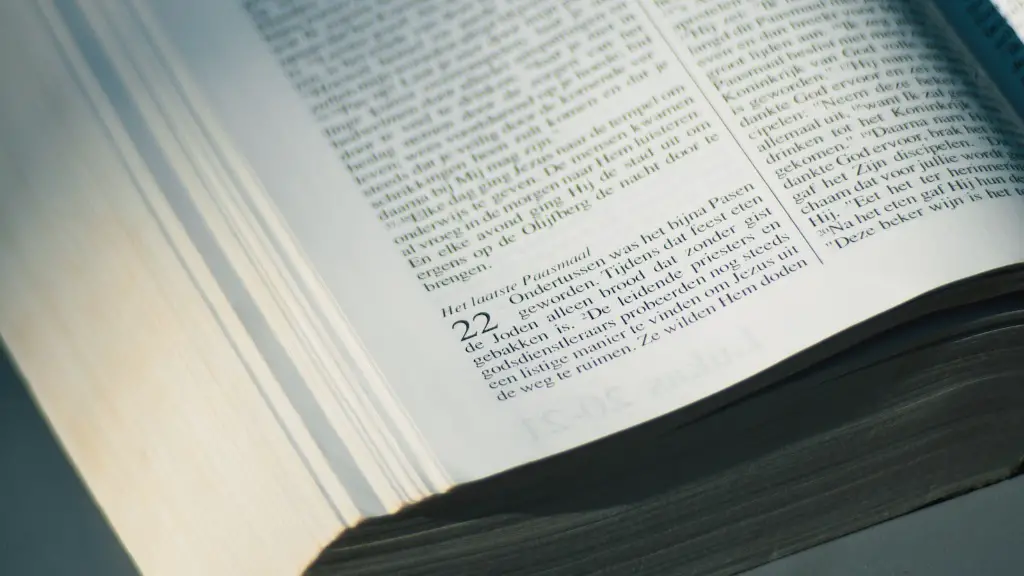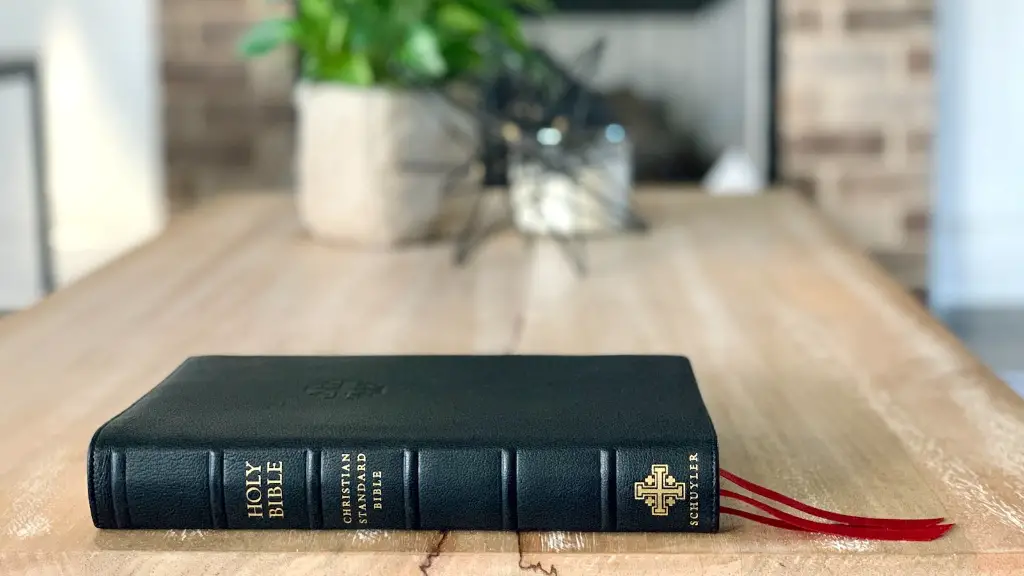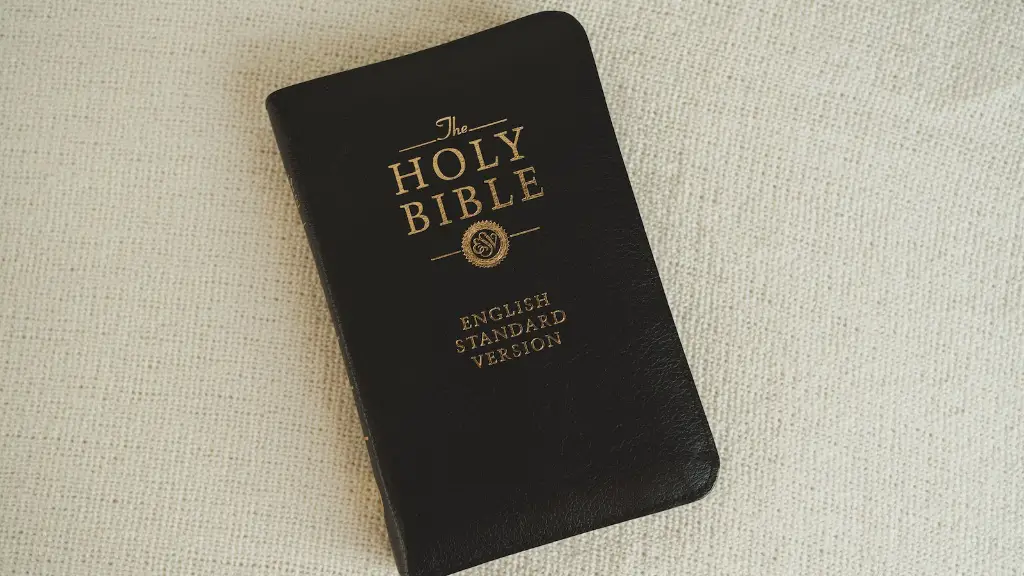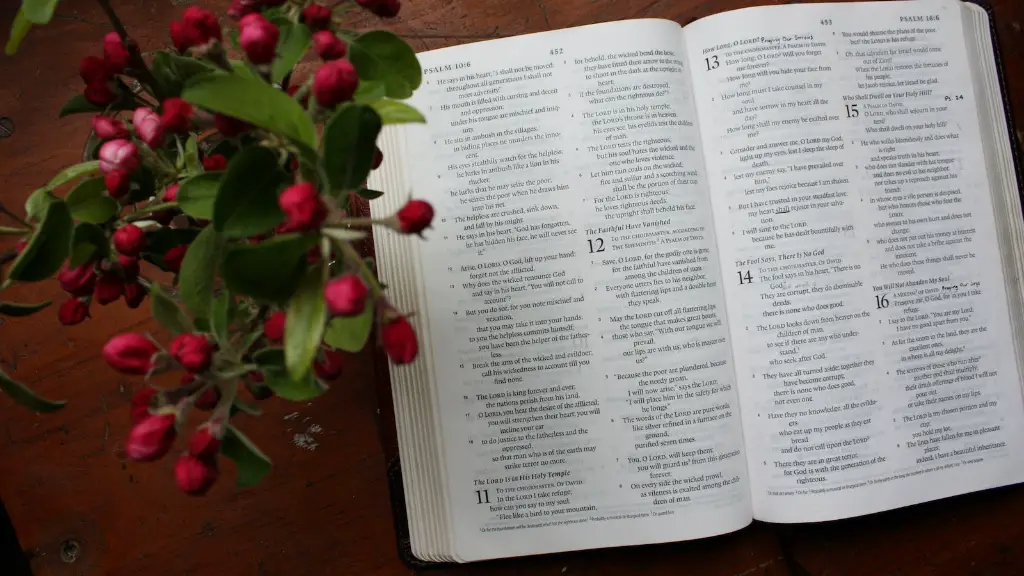Noah is a biblical figure who appears in the Bible’s Books of Genesis, Chronicles and even in the Quran. He is known for being granted divine guidance on how to build an ark and save himself, his family and two of every living creature on Earth during a flood that destroyed the world. The story of Noah and the Flood has been interpreted and re-interpreted throughout the years, with many non-Christians wondering, ‘What does Noah mean in the Bible?’
Noah is most commonly referred to as a symbol of divine intervention. His construction of the ark is a reminder that God ultimately has the power to bring salvation to people, even in the darkest of times. This theme is echoed throughout the Bible; Noah is used to convey the power of faith. For instance, in Genesis 6:8-10, Noah is described as the one ‘who does what is right in the eyes of the LORD’, demonstrating the ability for Christians to be the hands and feet of their chosen deity.
The character of Noah is also invoked in religious contexts to represent the divine salvific power of Christianity. In traditional Christian theology, a god-saving narrative is often used to justify the needs of a given religious system. For instance, the Great Flood is sometimes viewed as a symbol of the destruction of the old world but also as a symbol of a new beginning, with Noah’s survival representing the power of faith and hope that can be found in the new world. That’s why Christians may refer to Noah as a figure of hope in their faith, as a representation of their own escape from a hostile world.
The story of Noah has also been used to discuss ethics and morality. The survival of Noah and his family is one example of the human capacity for mercy, justice and kindness in the face of destruction and despair. God’s decision to save Noah and his family can be seen as a parable for universal kindness, demonstrating that even in the bleakest of moments, there is still a chance for salvation for those who remain faithful and turn to God. Additionally, the restoration of the world can be seen as a metaphor for forgiveness and renewal.
These examples illustrate the various meanings associated with Noah in the Bible. He is a symbol of divine intervention, the power of faith and hope, of mercy and justice and of renewal. Despite the fact that Noah’s story has been around for thousands of years, its relevance to today is undeniable – it is a reminder that faith and mercy are still possible in the darkest of times, even when our world has experienced such destruction.
Range of Interpretations and Connections
The story of Noah has been interpreted in a variety of ways, depending on the context and individual beliefs. Perhaps the most common interpretation is that Noah’s survival of the flood demonstrates God’s ultimate power. It is seen as a testament to God’s faithfulness to His people and a reminder of His ultimate authority.
For some, the story of Noah reflects on the universality of faith and mercy; as the passage from Genesis 6: 8-10 says, “Noah was a righteous man, blameless in his generation. He walked with God.” This verse offers a reminder not just to Christians but to people of all faiths that one should strive to have faith and a blameless moral character.
Noah also serves as a reminder of the potential for hope in any situation. After the flood, life on Earth was restored and Noah was given a new start. This offers a source of comfort and encouragement for those going through difficult times, reminding them that all is not lost and that although the future may seem bleak, a new beginning is always possible.
Comparisons to Ancient Mythology
The story of Noah can also be compared to other ancient myths and religious tales from around the world. For example, some researchers have argued that there are similarities between the story of Noah in the Bible and the ancient Babylonian creation epic Atra-hasis. Both stories feature a divinely-appointed figure who constructs a vessel in order to save the world from destruction, suggesting to some a common origin of the flood story.
Additionally, some have drawn comparisons between the story of Noah and the Greek tale of Deucalion, which tells of a great flood that wipes out a majority of humanity. While the details of the two stories don’t entirely match up, such similarities in ancient mythology suggest that stories of apocalyptic floods are as old as time.
Overall, the story of Noah in the Bible serves as an important symbol within Christianity and other religions. It is a reminder of divine intervention and of the power of faith and mercy. Additionally, it can be used as a reference for similar stories from ancient mythology, highlighting how universal the concept of natural disasters and new beginnings are.
Father-figure for the Faithful
Noah is also used as a father-figure for the faithful, showing how one’s commitment to God can lead to salvation. While God’s power over the natural world is undeniable, the Bible also emphasizes the importance of human action and moral judgement in the face of disaster. It is believed that God will grant a righteous person protection in times of peril. Noah’s survival of the flood is seen as an example of this principle.
The character of Noah has been used throughout the years as a symbol of hope and security. In times of unrest and uncertainty, some Christians may look to Noah’s story as a reminder of God’s ultimate power over nature and their own salvation. Thus, by remembering and reflecting on the power of faith and perseverance exemplified by Noah, believers can reaffirm their own trust in the Lord.
Prominent Place in Judaism
Noah’s place in the Bible is particularly important in Judaism, in which Noah is traditionally seen as a figure of righteousness and obedience. Noah’s journey to the ark is often presented as a paradigm of obedience and service to God. From this perspective, Noah serves as an example for how Jews should strive to live their own lives. In particular, Jews often look to Noah’s actions as a sign of faithfulness and obedience to the Divine Will — even amidst the turmoil of an impending flood.
Noah’s story is also a reminder in Judaism of the need for repentance and atonement. At the end of the story, God declares that He will never again destroy the world, signifying a new covenant with humanity. This has been interpreted by some to mean that although God desires justice, He also shows mercy on those who repent of their wrongs.
Overall, in both Christianity and Judaism, Noah is seen as a symbol of hope and divine preservation. His story serves as a reminder that God is ultimately in control and will always be faithful to those who trust in Him. From salvation to obedience to mercy, Noah’s story is an important reminder that faith and hope will always prevail.
Connections to Children’s Literature
Noah’s story has become so popular throughout the years that it has become one of the most recognizable figures in children’s literature. From classic Bible stories to newer picture books, the story of Noah and the Flood is often used to illustrate the power of faith and moral choices for children. In some cases, modern authors have even used the figure of Noah to introduce and explore topics such as ecology or animal rights.
For Christian children in particular, the story of Noah is a way for them to become familiar with their faith in a more accessible way. Not only does it provide a lesson in faith, Noah’s story also serves as a reminder of the importance of community — after all, Noah was saved by the animals he took with him on the ark, illustrating the power of befriending and protecting others.
The relationship between Noah and children’s literature is an interesting one. While Noah has been used as a symbol of faith for centuries, there has been a growing trend in recent years to use the character and his story as a way for children to understand the power of religion in a more dynamic way.
Noah in the 21st Century
With the popularity of the story of Noah in the Bible, it is no surprise that the figure has made his way into popular culture. From films and plays to books, Noah has become something of an icon in the 21st century, representing an earnest and devoted man who was determined to save the world. His story is often presented as a reminder of the power of faith and the potential for redemption.
While there are many interpretations and cultural references of the story of Noah, his relevance in the 21st century is undeniable. Today, we may use Noah’s story as an example for how faith can, and will, prevail even in the darkest of times, serving as a reminder that salvation awaits those who remain devoted and hopeful.
Furthermore, the figure of Noah continues to be associated with mercy and justice, with many seeing him as a reminder of the importance of morality and kindness. His ultimate redemption is a symbol of hope for all those who find themselves in need of a new beginning.
ESV Bible Sources
Finally, Noah is also associated with the English Standard Version Bible. This version of the Bible is popular among Anglican, Presbyterian and Reformed Churches, where Noah is often cited as an example of faith and obedience. Bible passages featuring Noah often demonstrate the power of righteousness, as well as the power of compassion and forgiveness, both of which are central tenets of many Christian denominations.
As a result, Noah has been included in many English Standard Version Bibles in order to provide a reminder of the power of faith and trust in the face of adversity. The inclusion of Noah in the Bible means that more people have access to his inspiring story, allowing them to incorporate his lessons into their own lives.
Overall, Noah’s place in the Bible is an important one, as it serves to remind us of the power of faith and mercy amidst trials and despair. His story has been interpreted and re-interpreted throughout the years and continues to serve as a beacon of hope and inspiration for many in the 21st century.





